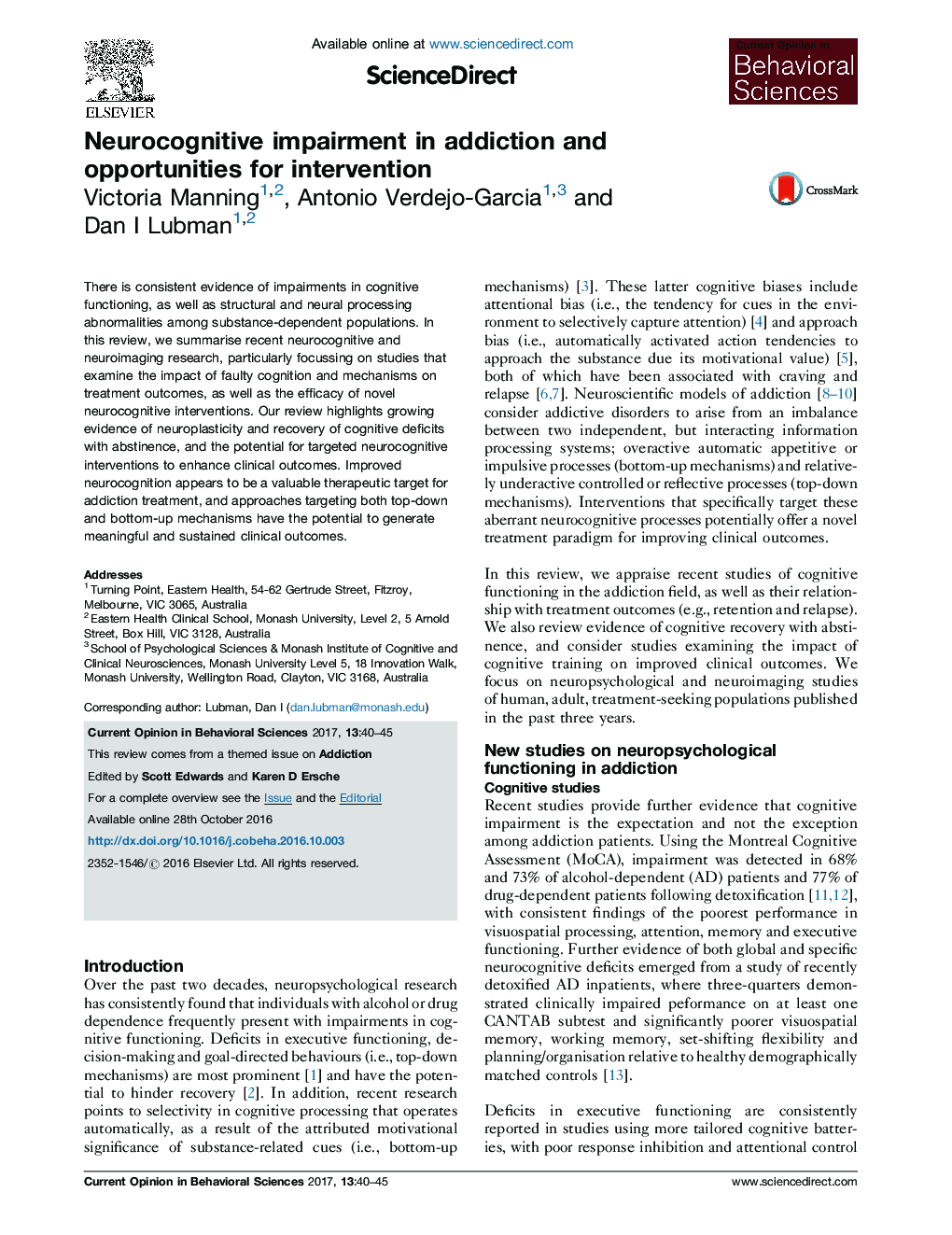| کد مقاله | کد نشریه | سال انتشار | مقاله انگلیسی | نسخه تمام متن |
|---|---|---|---|---|
| 6260297 | 1613077 | 2017 | 6 صفحه PDF | دانلود رایگان |
- Neurocognitive impairment and cognitive biases are common in addictions.
- Cognitive deficits show at least partial recover with abstinence.
- Neuroimaging studies are suggestive of neuroplasticity during early abstinence.
- Working memory and cognitive bias modification can capitalise on this neuroplasticity.
- Approaches targeting top-down and bottom-up processes may improve outcomes.
There is consistent evidence of impairments in cognitive functioning, as well as structural and neural processing abnormalities among substance-dependent populations. In this review, we summarise recent neurocognitive and neuroimaging research, particularly focussing on studies that examine the impact of faulty cognition and mechanisms on treatment outcomes, as well as the efficacy of novel neurocognitive interventions. Our review highlights growing evidence of neuroplasticity and recovery of cognitive deficits with abstinence, and the potential for targeted neurocognitive interventions to enhance clinical outcomes. Improved neurocognition appears to be a valuable therapeutic target for addiction treatment, and approaches targeting both top-down and bottom-up mechanisms have the potential to generate meaningful and sustained clinical outcomes.
Journal: Current Opinion in Behavioral Sciences - Volume 13, February 2017, Pages 40-45
